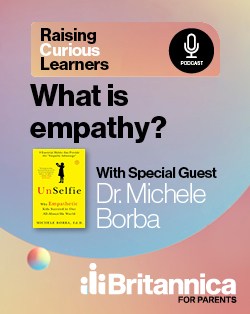Human Rights
These are the rights that you’re entitled to, simply for being human. The term “human rights” is relatively new, having come into common use around the mid-20th century, but the concept of human rights had its origins in ancient Greece and Rome. Although the principle of human rights has gained widespread acceptance over the centuries, there has been disagreement over the nature and scope of such rights and their definition. Still, the reality of popular demands for human rights in the early 21st century is undeniable, and a deepening and widening concern for the promotion and protection of human rights on all fronts is now woven into the fabric of contemporary world affairs.
Human Rights Encyclopedia Articles
Featured Articles
United Nations Declaration on the Rights of Disabled Persons
United Nations Declaration on the Rights of Disabled Persons, statement adopted by the United Nations (UN) General Assembly on December 9, 1975. In essence, the Declaration on the Rights of Disabled Persons states that all persons with disabilities have the same rights as other persons. Prior to...
Encyclopedia / Human Rights
United Nations
United Nations (UN), international organization established on October 24, 1945. The United Nations (UN) was the second multipurpose international organization established in the 20th century that was worldwide in scope and membership. Its predecessor, the League of Nations, was created by the...
Encyclopedia / Human Rights
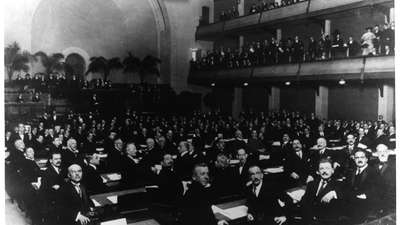
Feminism
Feminism, the belief in social, economic, and political equality of the sexes. Although largely originating in the West, feminism is manifested worldwide and is represented by various institutions committed to activity on behalf of women’s rights and interests. Throughout most of Western history,...
Encyclopedia / Human Rights
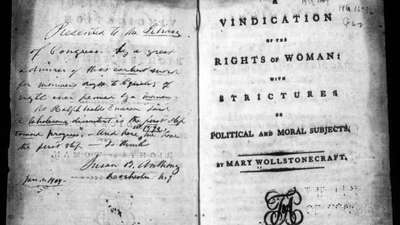
Magna Carta
Magna Carta, charter of English liberties granted by King John on June 15, 1215, under threat of civil war and reissued, with alterations, in 1216, 1217, and 1225. By declaring the sovereign to be subject to the rule of law and documenting the liberties held by “free men,” the Magna Carta provided...
Encyclopedia / Human Rights
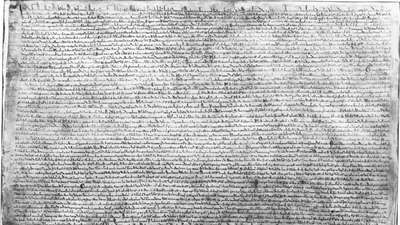
Grimké sisters
Grimké sisters, American antislavery crusaders and women’s rights advocates. Sarah Grimké (in full Sarah Moore Grimké; b. Nov. 26, 1792, Charleston, S.C., U.S.—d. Dec. 23, 1873, Hyde Park, Mass.) and her sister Angelina Grimké (in full Angelina Emily Grimké; b. Feb. 20, 1805, Charleston, S.C.,...
Biography
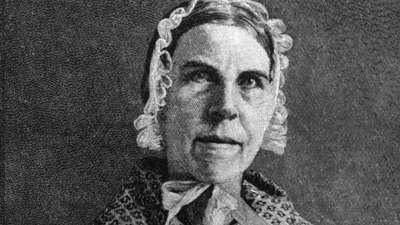
Elizabeth Cady Stanton
Elizabeth Cady Stanton, American leader in the women’s rights movement who in 1848 formulated the first organized demand for woman suffrage in the United States. Elizabeth Cady received a superior education at home, at the Johnstown Academy, and at Emma Willard’s Troy Female Seminary, from which...
Biography
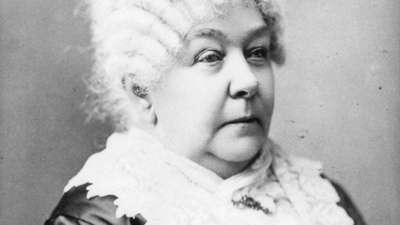
Human rights
Human rights, rights that belong to an individual or group of individuals simply for being human, or as a consequence of inherent human vulnerability, or because they are requisite to the possibility of a just society. Whatever their theoretical justification, human rights refer to a wide continuum...
Encyclopedia / Human Rights

John F. Kennedy
John F. Kennedy, 35th president of the United States (1961–63), who faced a number of foreign crises, especially in Cuba and Berlin, but managed to secure such achievements as the Nuclear Test-Ban Treaty and the Alliance for Progress. He was assassinated while riding in a motorcade in Dallas. The...
Biography

Viola Desmond
Viola Desmond, Canadian businesswoman and civil libertarian who built a career as a beautician and was a mentor to young Black women in Nova Scotia through her Desmond School of Beauty Culture. It is, however, the story of her courageous refusal to accept an act of racial discrimination that...
Biography

Women's suffrage
Women’s suffrage, the right of women by law to vote in national or local elections. Women were excluded from voting in ancient Greece and republican Rome, as well as in the few democracies that had emerged in Europe by the end of the 18th century. When the franchise was widened, as it was in the...
Encyclopedia / Human Rights
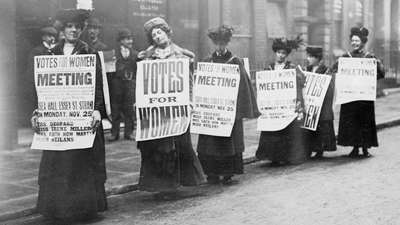
Mahatma Gandhi
Mahatma Gandhi, Indian lawyer, politician, social activist, and writer who became the leader of the nationalist movement against the British rule of India. As such, he came to be considered the father of his country. Gandhi is internationally esteemed for his doctrine of nonviolent protest...
Biography
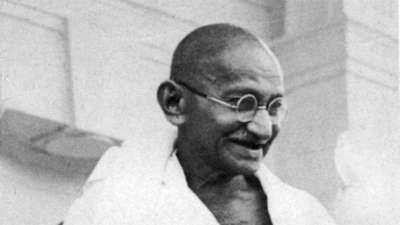
Martin Luther King, Jr.
Martin Luther King, Jr., Baptist minister and social activist who led the civil rights movement in the United States from the mid-1950s until his death by assassination in 1968. His leadership was fundamental to that movement’s success in ending the legal segregation of African Americans in the...
Biography

Human Rights Watch
Human Rights Watch, international nongovernmental organization that investigates and documents human rights violations and advocates for policies to prevent such abuses. Founded in 1978 as Helsinki Watch to monitor the Soviet Union’s adherence to the Helsinki Accords, the group subsequently...
Encyclopedia / Human Rights
